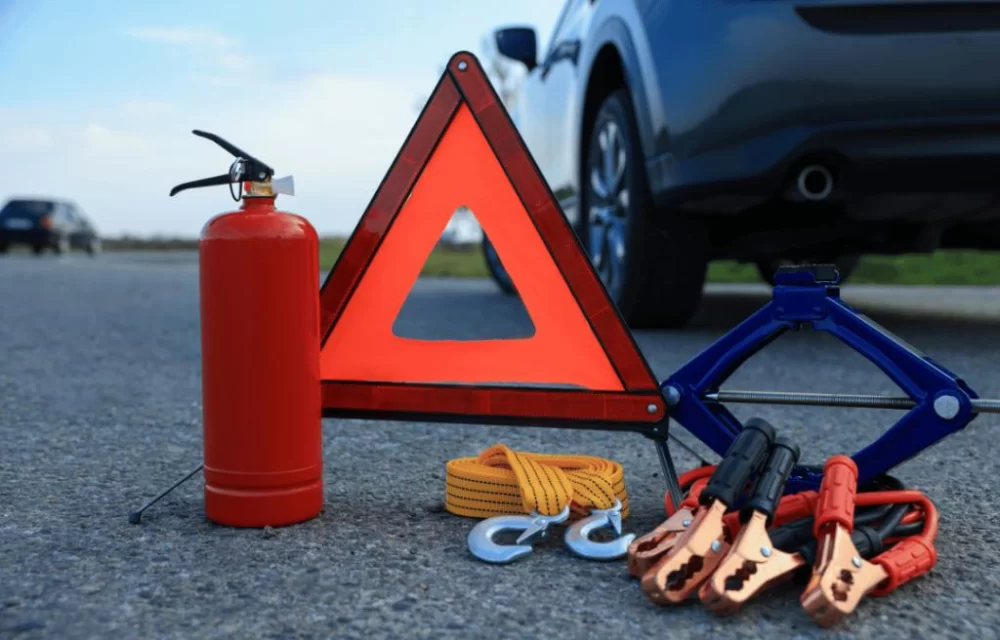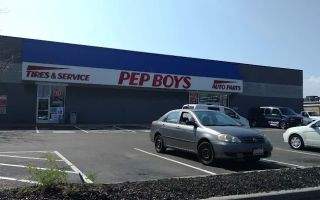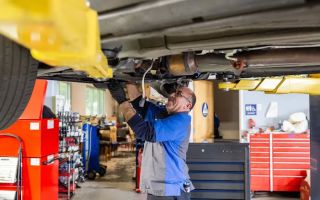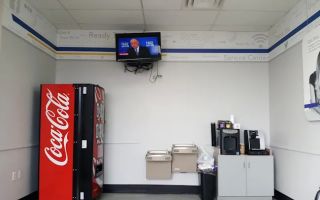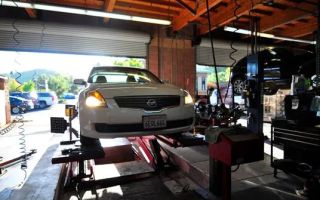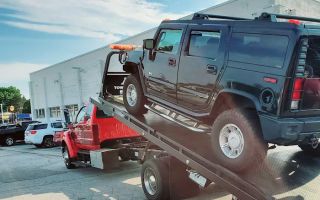How to Plan a Safe and Effective Rescue Request
Being in a situation where you need a rescue is never easy. Whether you're stranded on the side of the road due to a breakdown or stuck in an emergency situation, making a rescue request requires careful planning to ensure safety and efficiency. In this guide, I'll share with you the essential steps to plan a safe and effective rescue request, from gathering the right information to ensuring the best service arrives when you need it most.

AJ's Auto Glass & Detailing
4404 S 84th St, Omaha, NE 68127, USA
1. Assess the Situation
The first step in planning a safe rescue request is to assess the situation. This includes evaluating the type of emergency, your location, and your safety. For instance, if you're stuck on the highway, your immediate priority should be your own safety. Ensure you're in a safe spot, away from traffic, and if possible, turn on your hazard lights. If you're in a vehicle, make sure all passengers are safe and remain inside until help arrives. If you're on foot, find a safe location to wait for the rescue team.
Once you're sure everyone is safe, it’s time to gather the details of your situation. This includes:
- Your exact location. Use GPS or landmarks to give the most accurate description.
- The nature of the emergency (vehicle breakdown, medical emergency, etc.).
- The severity of the situation, such as whether someone is injured or if there's an immediate danger (e.g., fire, flooding).
- Any other relevant details, like whether the road is blocked or if there’s a need for special equipment.
2. Contacting the Right Service
Once you’ve assessed the situation, the next step is contacting the right service. Depending on the nature of the emergency, you may need to contact roadside assistance, medical emergency services, or a towing service. Knowing who to call can make all the difference.
For roadside assistance or towing, most people are familiar with services like AAA or local tow truck companies. However, not all towing services are created equal. Make sure you have access to reliable companies that are capable of handling your specific situation. To find the best service:
- Check for reviews online or ask for recommendations from friends or family.
- Make sure the company has experience handling your type of emergency (e.g., heavy-duty vehicles, long-distance towing, etc.).
- Ensure the service operates 24/7 in case of emergencies outside regular business hours.
It’s also essential to know whether the service you contact is equipped with the necessary tools to handle your emergency. For example, if you’re in a remote location, a standard tow truck may not be enough. In such cases, you’ll need to ensure that the company has off-road capabilities or specialized equipment.

AJ's Auto Glass & Detailing
4404 S 84th St, Omaha, NE 68127, USA
3. Provide Clear and Detailed Information
When you make the call, it's crucial to provide clear and detailed information to the dispatcher. This will help them understand the severity of the situation and ensure they send the appropriate help. Here's what to include:
- Your location: Be as specific as possible. Use street names, mile markers, or GPS coordinates if available.
- The nature of the emergency: Briefly describe what happened and any immediate dangers.
- The number of people involved: If you're with others, mention how many people need assistance.
- The condition of the vehicle (if applicable): If your vehicle is involved in the emergency, let the dispatcher know its condition (e.g., flat tire, engine failure).
The more information you provide, the faster and more effectively the rescue team can respond. It’s essential to stay calm and be patient during this process, as the dispatcher may need additional details to ensure safety.
4. Stay Safe While Waiting
While waiting for help to arrive, your safety should always be your top priority. If you're on the road, stay inside your vehicle with the doors locked, especially if you’re in a high-traffic area. If you're outside your vehicle, stand at a safe distance away from the road and be aware of your surroundings.
If you're in a remote location and worried about being found, it can be helpful to use a flashlight or signal for attention. In some cases, leaving a visible marker (such as a flag or light) near your vehicle may help rescuers spot you more quickly. However, be careful not to obstruct roadways or create additional hazards for other drivers.
5. Communicate and Coordinate with the Rescue Team
When the rescue team arrives, make sure to communicate any important details about the situation that may help them perform the rescue more efficiently. For example, if you’ve already tried to restart your vehicle or if there are any dangerous conditions in the area (e.g., hazardous weather), let them know immediately.
Additionally, be prepared to show the team any necessary paperwork, such as proof of ownership for your vehicle or your insurance details, if required. Having this information readily available can speed up the process and prevent delays.
6. Follow Safety Protocols During the Rescue
During the rescue process, always follow the safety protocols outlined by the rescue team. This may include staying at a safe distance from the vehicle or rescue equipment, or following the team’s instructions to avoid causing additional harm or damage. Make sure that all passengers are kept safe and away from any hazardous areas until the situation is fully resolved.
7. Learn from the Experience
Once the rescue is complete, take time to reflect on the experience. What went well? What could have been improved? Learning from your experience can help you better prepare for future emergencies. Additionally, if you frequently travel or drive in remote areas, it’s always a good idea to keep an emergency kit in your car, including a flashlight, first aid supplies, and a charged phone with a car charger.
Rescue situations can be stressful, but knowing how to plan and respond effectively can make all the difference. By staying calm, gathering the right information, and working with the right service providers, you can ensure your safety and the safety of others during an emergency.

